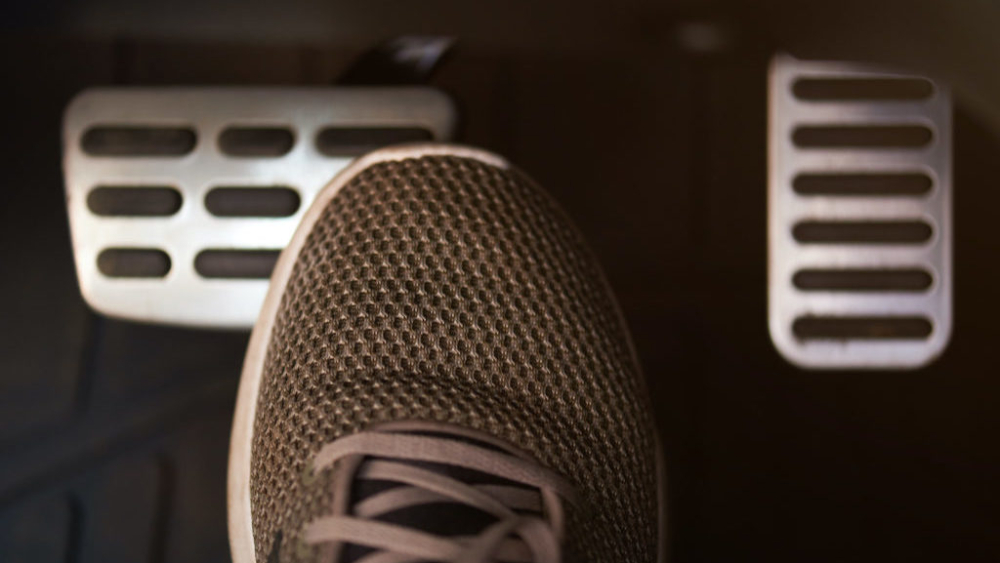There are a few essential elements to the safe operation of every used car in Calgary. Perhaps the most important one? The brakes. If you’re considering used cars in Calgary, it’s important to understand how the brakes work and the signs you may notice when something is wrong. If a used car you’re considering shows symptoms of brake problems, don’t purchase that car until every necessary repair has been performed and the vehicle is certified.
The basics of brakes
A typical vehicle features disk brakes on the front wheels and disk or drum brakes on the back wheels. Your brake pedal connects to the brakes at each wheel with tubes and hoses that contain brake fluid. That brake fluid is forced through those hoses and tubes to varying degrees when you press your brakes and activate the master cylinder.
When you activate the master cylinder, here’s what happens on your disc brakes (front or back wheels). Fluid is forced into a caliper that activates a piston that squeezes two brake pads against a rotor attached to your wheel. As the brake pads squeeze against either side of the rotor, your wheel slows and stops.
What happens at your drum brakes (rear wheels) when you activate your master cylinder by pressing your brake pedal? Fluid pushed into your wheel cylinder presses your brake shoes against the drum connected to the wheel. That contact between the pads and the drum slows and ultimately stops the wheel from turning.
With those basics out of the way, let’s take a look at three common sounds you may hear coming from your brakes when things are not in tip-top shape and what should be done.
Grinding
If you hear a grinding sound when you press the brakes on any car, you have a serious problem — serious enough that you should pull over when safe and stop driving. That grinding noise is probably being produced because there is no material — the material whose pressure against the rotor is what is supposed to slow you down — left on your brake pads.
Rather than smooth, quiet, and speed-arresting brake pads, you hear the sound of metal on metal. Metal on metal will not slow you down efficiently or safely, and continued driving will rapidly increase the cost of repairs. The longer you go, the more likely you’ll need to replace your rotors too.
Thumping
Brake drums have tiny grooves carved into them that act as tracks for your brake shoes to follow as they ride along the surface of your drums and press against those drums when activated by the master cylinder. In a perfect world, those grooves are smooth and continuous around the full circumference of your drum. In the real world, those grooves can be interrupted. When your brake shoe hits that interruption, it very quickly snaps upward out of the groove and bangs against the backing plate before dropping back down against the drum and, hopefully, back into the groove — only to repeat the process over and over again. What will that sound like to you? It’ll sound like thumping.
Removing that thumping sound can be accomplished in several ways: replace the drums altogether; or have them removed and ground slightly on a lathe to restore the appropriate groove to guide your shoes continuously and quietly.
Squeaking
Squeaky brakes can be a symptom of a couple of different issues. The first cause of squeaks may be that your brake pads are of less than ideal quality. If you’ve recently had a brake job done at a seemingly discounted price, that price might reflect that cheap brake pads were installed. Those cheap brake pads often contain large metal flakes that can get dragged along the rotor and cause a squeak. If this is the cause, the squeaks may appear intermittently as one flake appears and is worn away before a new flake rears its noisy head.
Another potential source of squeaks is when your brake’s wear indicator — a small metal piece attached to your brake pad that, when it touches the rotor, signals the pads are wearing thin — is striking against your rotor. In this case, the squeak is a good thing. Well, it’s a reminder that you need to have your brakes serviced soon and those pads replaced. Don’t ignore that warning.
If you ever have questions about brakes or any system on a used car, contact a reputable used car dealership in Calgary for their advice and support in finding the perfect new-to-you car to get you from A to B and stop when you get there.

